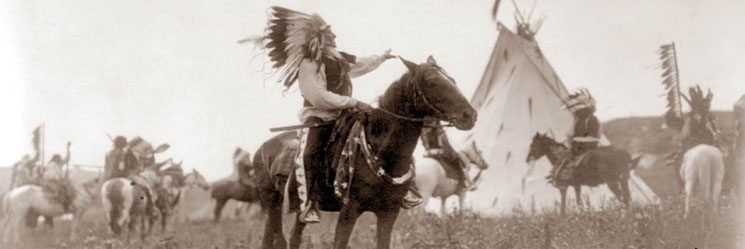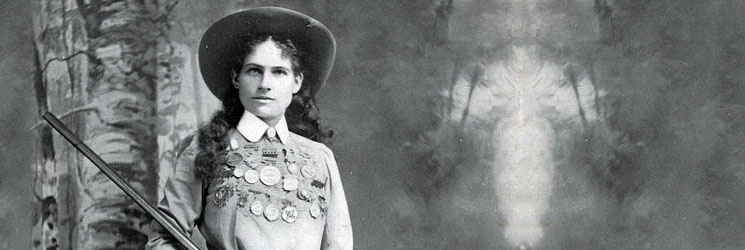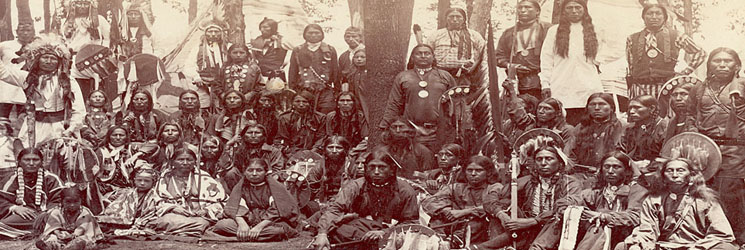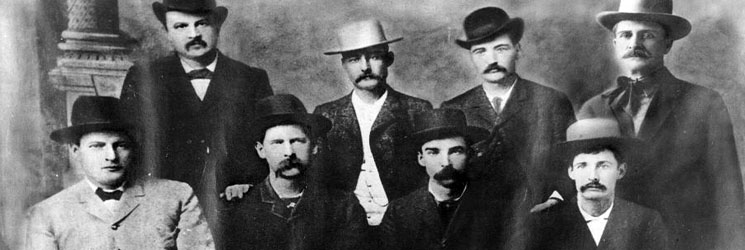To try to describe the Lakota (Sioux) concept of “wakan” would be much like trying to put down a few paragraphs and accurately and amply sum up “God.” It can’t be done. Wakan is so faceted in nature it would be impossible to describe it all in words, but the following is an attempt to convey just a inkling of what it is all about.
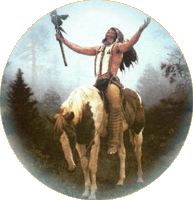
In the world of the Lakota, the word wakan means many things, yet nothing that is easily understood. Even among the Lakota themselves a great deal of thought and study is necessary in a quest to understand the concept of wakan.
Those who travel among the Lakota hear them speak of their beliefs in wakan by many names: Wakan Tanka, Tunkashila, Taku SkanSkan, Great Spirit, Grandfather. The traveler might ask “Are these names for one being or for many?” The answer would have to be both.
To the Lakota, those which made everything are Wakan Tanka. Though wakan have separate meanings unto them selves, Wakan Tanka can be loosely interpreted as “wakan” as “mystery” and “tanka” as “something great.” And being the “creators,” the Wakan Tanka also are Wakanpi, those things above mankind. They are never born and they never die. The Wakanpi, spirits, have power over everything on earth and control everything mankind does. There are benevolent Wakanpi that will bestow the wishes man asks of them, and evil Wakanpi that are to be feared. and
Man uses songs, ceremony and gifts to honor and appease, all under the auspices of the holy man or shaman, wicasa wakan. Prayers offered to the wakan beings as a whole are addressed to Wakan Tanka, but prayers offered to a specific being should address the being by name.
Music is a good vehicle of prayer, and it is said the Wanka Tanka always give attention when they hear the drums and rattles. While the good wakan beings are fond of prayers that reach them on the smoke of sweetgrass, the evil wakan beings fear the smoke of sage. All the Wakan Tanka are pleased with the smoke of the Lakota pipe.
White culture sometimes refers to the Lakota medicine man as a “medicine man,” or as the Lakota say, wicasa wakan, when he is performing ceremonies, and believe he is making medicine when doing so. This is incorrect because the Lakota call something a medicine only when it is being used to tend to the sick or injured, and so the proper term would be pejuta. So a man of medicine among the Lakota, a “doctor,” is a pejuta wacasa, which is not to be confused with wicasa wakan, which is a holy man, or shaman. A wicasa wakan is wise, one who knows and has power with the spirits and can communicate with them. He knows the songs and the ceremonies and can interpret visions. He can tell people what the spirits expect of them, predict the future, speak to nature…to everything on earth. So one, the pejuta wacasa, tends to the physical being, while the other, wicasa wakan, tends to the spiritual.
When a holy man uses an object in a ceremony that object becomes filled with something that best be described, for lack of an actual English term, as “spirit.” The Lakota use the term tonwan or ton to describe it. Ton is the power to do the supernatural. Rattle, smoke, feather…once anything has tonwicasa wakan has the power of wakan beings, bestowed upon him by wakanton has been placed, called a Wasicun, from which the shaman do their work from. White culture would probably call this a “medicine bag,” which is incorrect because there is no “medicine” in it. White doctors or Lakota pejuta wacasa would have “medicine bags,” not holy men. Wasicun is actually a wakan being too, but the least powerful of all. it becomes wakan because the spirit is said to have entered it. Therefore, a beings. With that power the holy man can put ton into anything. He also has a place of his own where
Like Wanka Tanka, which can be good or evil, this ton is not necessarily positive in the big picture either. For example, the roots of certain plants are wakan because they are poisonous or some reptiles are considered wakanwakan because the stories handed down from generation to generation have said the wakan beings made them so. A person acting out of the norm, appearing “crazy,” is wakan. Even alcohol, which makes one “crazy,” is wakan. On the other hand, food is wakan because it gives life. Very old things are wakan because their origin is a mystery. Babies are wakan because they do not speak. Every object in the world has a spirit and that spirit is wakan, good or evil, put there by Wanka Tanka, good or evil. because their bite can kill. Some animals are
Lame Deer served his people as a medicine man and ritual leader for many years and could easily be considered somewhat of an “expert” on concept and tradition among the Lakota. About Wakan Tanka he said:
You can’t explain it except by going to the circles within circles idea, the spirit splitting itself up into stones, trees, tiny insects even, making them all wakan by his everpresence. And in turn all these myriad of things which make up the universe flowing back to their source, united in the one Grandfather spirit.

